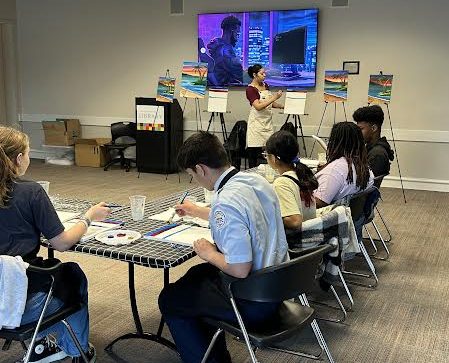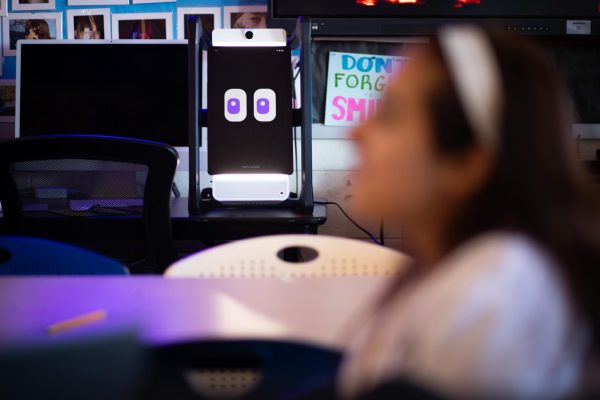Changes to the SAT will not affect current senior class
Before moving into your dorm, before picking your college spirit wear and even before applying to college, there’s something everyone has to do- take the SAT. And by now you have probably heard that the SAT is soon to be altered, but you might not know how or when.
The SAT, also known as the Scholastic Aptitude Test, has actually already been altered, it just hasn’t been released yet. In fact, sample questions from the new SAT were released in June and are already available online at the College Board website and tutoring companies such as Khan Academy.
The first chance to take the new SAT will be March 5, 2016. This means that seniors will not take it if they are planning to use their SAT scores to apply to college for school next fall. This is the test that everyone else will be studying for and the test they will eventually take. For those who will take the new PSAT, its first release will be this month, October 2015. So, unless you’re in the class of 2016, you will be taking the newest edition of the SAT.
The scoring of the SAT will change from a scale of 600-2400 to 400-1600. This is due to a completely new scoring system that scores each specific section of the test separately (i.e algebra, data analyzing skills, etc.) and then composes them into a broader category. These sectional scores will all add up to a maximum score of 1600.
Also, there will be no point deduction for wrong answers. For those who didn’t know, on the current SAT for every wrong answer there is a quarter point deduction and for every right answer one point granted. It was suggested, in the old version, that if you didn’t know the answer to a question you shouldn’t answer it at all, to save points. In this new version, for every wrong answer you will simply not receive a point.
For example, on the old version if you got four out of five questions right your score would be 3.75 (one point for each right answer – a quarter point for the wrong answer). In this new version, if you were to get four questions out of five right your score would be four.
“It’s great in a sense that you can answer more questions without the stress of those points being deducted,” sophomore Grace Friedheim said, “But, then it could make us more careless with our answers. Overall, I will definitely guess more. If I have an opportunity to guess the answer right, I’m going to take it.”
According to the College Board, “obscure” words that you will never use again will no longer be tested in the new vocabulary section. Instead, this new test will ask you about vocabulary based on a passage and its context. So, no more “SAT words” that you have to know to answer the question. If you don’t know the word that the question is asking about, you will be more or less able to deduce the answer from its context.
Some other small changes are, for example, the fact that the essay that is taken at the end of the test is optional, although you probably will want to write it. Almost all colleges require you to submit that score when applying. Another small change is that there will be four answer choices as opposed to five in the multiple choice sections of the test.
The main point of this new SAT, according to College Board, is to be more real-world-skill based. That means a huge focus on reading, analyzing, writing and language with some questions on math, and a few on science and history. In fact, 96 out of the 154 questions on the test are on reading and writing and language. Plus, the essay is another portion all about writing. That makes more than half of the test English. For some, this may be a relief, however for those of whom math is their stronger subject they may feel a disadvantage.
“Basing the test more on reading is a terrible idea,” said senior Nygel Harris, “it’ll create an unfair disadvantage for those who are stronger in math, like me…students who are better at English will have a better opportunity to get a higher score.”
But if you are feeling a little nervous about the upcoming test, you need not worry because Khan Academy, a well known tutoring agency, has just paired up with College Board and is now offering free on-line help for students who wish to study for the SAT.
“Any preparation is better than no preparation,” Julia Mercabi, East Meck’s testing coordinator said about the new Khan Academy program.
Mercabi explained that the free program is a great opportunity that all students wishing to take the SAT should take advantage of.
“You don’t want to go into the test blind,” Mercabi said.
The new program is especially advantageous considering that normally these kind of “prep” programs are very expensive.
Therefore, the SAT is changing, but according to the creators of the test it is primarily changed in the test taker’s favor.
“One of our biggest goals in changing the SAT,” it reads on the college readiness-college board website, “is to make sure it’s highly relevant to your future success. The new test will be more focused on the skills and knowledge at the heart of education.”
Your donation will support the student journalists of East Mecklenburg High School. Your contribution will allow us to purchase equipment and cover our annual website hosting costs.





